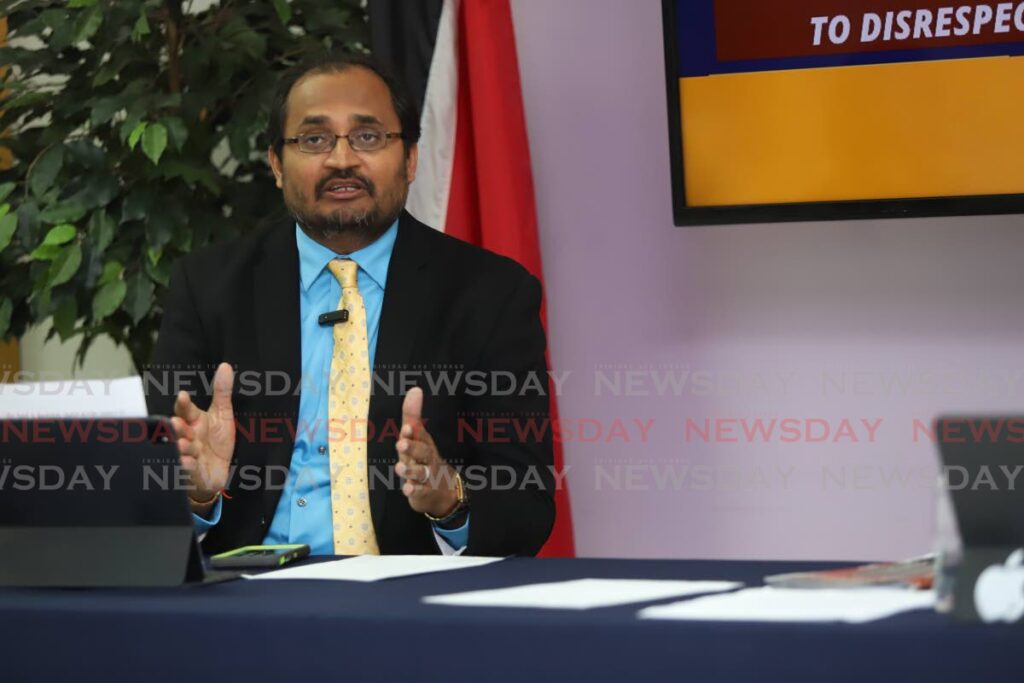Will divers’ families ever get justice?

DINESH RAMBALLY
THE FIRST anniversary of the deaths of the four divers whose watery graves were sealed with certainty by Paria Fuel Trading Company Ltd has been reached. While we await the report of the Lynch commission of enquiry (CoE), which continues in deliberations, the anniversary question which arises is whether the families of the deceased divers will ever get justice.
Justice Peter Cory wrote in Phillips and Nova Scotia (Commission of Inquiry into the Westray Mine Tragedy): “One of the primary functions of public inquiries is fact finding. They are often convened, in the wake of public shock, horror, disillusionment or scepticism, in order to uncover ‘the truth’.
"Inquiries are, like the judiciary, independent; unlike the judiciary, they are often endowed with wide-ranging investigative powers. In following their mandates, commissions of inquiries are, ideally, free from partisan loyalties and better able than Parliament or the legislatures to take a long-term view of the problem presented.
Cynics decry public inquiries as a means used by the government to postpone acting in circumstances which often call for speedy action…” (emphasis mine).
Traditionally, local commissions of enquiry have been criticised for taking too long, costing too much and for lacking coercive power to punish and to ensure implementation of recommendations.
In the instant Lynch CoE, there can be no doubt that the population has followed the proceedings with intense interest. To them, this enquiry is ideally supposed to arrive at what really led to the death of the divers, review the processes of Paria and its interactions with other entities and apportion blame accordingly. Its findings cannot come soon enough. For the Government, it hopes that the findings will restore public confidence in its crown jewel, Paria.
Further, by promising to ensure that Paria will take any necessary remedial action to preserve life and limb in the future, PM Rowley, his friend Newman George, other Paria officials and related parties all hope to put any culpability behind them.
As stated by Justice Cory, an enquiry can also allow a government tainted by scandal or wrongdoing to postpone the political fallout.
However, if conducted fairly, an enquiry is an acceptable means of investigating incidents of national importance and obtaining policy recommendations from an independent and impartial source. One of its roles is catharsis. It allows people to express their indignation, which they hopefully get over, and get back to being contented citizens. Without catharsis, these feelings of injustice fester and eventually emerge as some form of malignance.
Related to the issue of catharsis, I have some concerns with the Lynch CoE, and it stems from my own humble view that it failed to summon Energy Minister Stuart Young and Labour Minister Stephen Mc Clashie. All policies at Paria are ultimately approved by the Energy Minister.
Likewise, all policies relating to labour standards and health and safety regulations at work would ultimately fall under the remit of the Labour Minister. Their ministerial responses, if any, should be assessed as to whether they were adequate and/or sufficiently robust or required at all. As line ministers the buck stops with them.
Furthermore, Young, Paria chairman Mushtaq Mohammed and terminal operations manager Collin Piper met with the families of the divers and assured them that all possible action was being taken to retrieve the divers safely. Certainly, this meant that Young was himself assured of certain things before he could be part of the panel giving assurances to the families.
One can only hope that the CoE will appreciate that there is still room for “Maxwell Letters” (giving notice that adverse findings may be made against them) to be issued to both ministers, thereby calling their actions or lack thereof into account and pronouncing appropriately upon same.
But, in all of this, the key question remains unanswered: Do the families get justice for the deceased divers? The CoE will not dispense justice. Rather, it has performed an investigative role and is expected to make recommendations. It gives me no satisfaction in saying this, but recommending ways to prevent a recurrence of the painful events will not bring justice to the deceased divers’ families.
In our society which has at the heart of its Constitution the right of an individual to life, liberty and security of the person, we have professional internet trolls offensively antagonising bereaved family members, suggesting that they are seeking to extort monies out of this tragedy. This is ironic given that Paria’s lead attorney submitted before the CoE that “there is no compensatory measure that could be done to these families. The loss of their loved ones is irreplaceable.”
For those who view this as simply a punch line, I can assure them, based on my own experience in fatal accidents litigation, that, as a matter of law, the estate and or dependants of the deceased will not be rewarded with any windfall of damages. If not resolved amicably, claims would have to be made and the issue of liability has to be determined.
The assessment of damages is governed by the Fatal Accidents Legislation – the Supreme Court of Judicature Act (the estate claim) and the Compensation for Injuries Act (the dependency claim) under which the dependants or near relations of the deceased receive compensation for the material loss they have suffered as a result of the death.
This, according to Lord Wright in Davies v Powell Duffryn Associated Collieries Ltd [1942] 1 All ER 657, p 665, is "a hard matter of pounds, shillings and pence." After all, this is not a malicious prosecution claim being brought by the Vindra Naipaul Coolman murder accused.
I conclude by expressing collective condolences on behalf of the public to the families of Fyzal Kurban, Yusuf Henry, Kazim Ali Jr and Rishi Nagassar.
Dinesh Rambally is the MP for Chaguanas West

Comments
"Will divers’ families ever get justice?"